Introduction
The digital age is a time of great change for many industries. The workplace has changed as well, with new technology and methods of communication becoming available. In this article we will discuss how you can prepare yourself for the future by learning new skills that will help you in your job search or career path.
1. Get involved in the digital world
If you want to be able to work in a tech-focused industry, it’s important for you to get your hands dirty with some coding and computer science courses. By learning how to use new technologies, you’ll be able to apply this knowledge when working on projects at your job or volunteering at an organization that uses technology. This can also help improve your career prospects by helping employers see what kinds of skills they need from candidates who want jobs within their field; if they know that someone has done this before (and is still doing so), then they’re more likely to give him/her another chance!
2. Network with others
The best way to learn is by doing, but sometimes it’s hard to find the time. That’s why we recommend joining your local meetup group and learning from other people who are just like you. This can be as simple as going to a coffee shop every week with friends or organizing a class for yourself at home.
If that doesn’t work for you, then consider joining an online community where you can talk about the industry with others who are passionate about it too (or even better: get paid!). This can include forums like Reddit or Hacker News; podcasts such as Software Engineering Daily or Product Manager Roundtable Showcase; blogs such as A List Apart and other tech publications; LinkedIn Groups around specific topics (like Front-end Development); Twitter chats on specific topics (like JavaScript); Slack groups where people share news articles related to their job role
3. Learn to code
If you’re already a programmer, you can continue learning how to code. It’s important to note that coding is not the only skill you need in order to succeed as an employee in this digital age. In fact, coding alone won’t get you very far unless your employer also provides training on how best to use their products or services.
If this sounds like something that interests you but doesn’t fall into any of the above categories: there are plenty of other ways for aspiring developers and tech professionals alike (including those without formal education) who want their career paths set on track before they even begin! One option is attending a bootcamp which helps individuals learn basic programming languages while they’re still at school or college; another option involves learning through online courses offered by universities around the world; while still another involves taking courses through local community colleges–although these options may require additional costs associated with tuition fees due to higher standards being set forth by universities worldwide today compared with previous generations’ standards back when I attended high school myself.”
4. Start by speaking up and start small
The most important thing you can do is to start small, so don’t be afraid to make mistakes. Practice makes perfect, and it’s always better to get some experience under your belt before diving into the deep end of things. You never know who else has been there before!
- Don’t be afraid to ask for help
Sometimes things take longer than expected or feel harder than they should because we’re afraid that if we ask for help, then our value will decline (or worse yet–we’ll look stupid). But asking for help doesn’t mean that someone else knows more than you do; it just means they have more experience with this particular task in mind so they can offer insight into how best to move forward from here on out with whatever challenges come along next time around.”
- Digital skills are important, but you can develop them with social interaction and practice
As the digital world has become more prevalent, there are many opportunities to develop your skills in this area. If you want to get started, learn how to code and network with others–and don’t forget social interaction!
Conclusion
Digital skills are important, but they’re not a replacement for face-to-face communication. The best way to learn them is by being engaged in the world around you, interacting with people and making connections. If you want to become more skilled at your job, then start by interacting with others and learning how their lives work!




